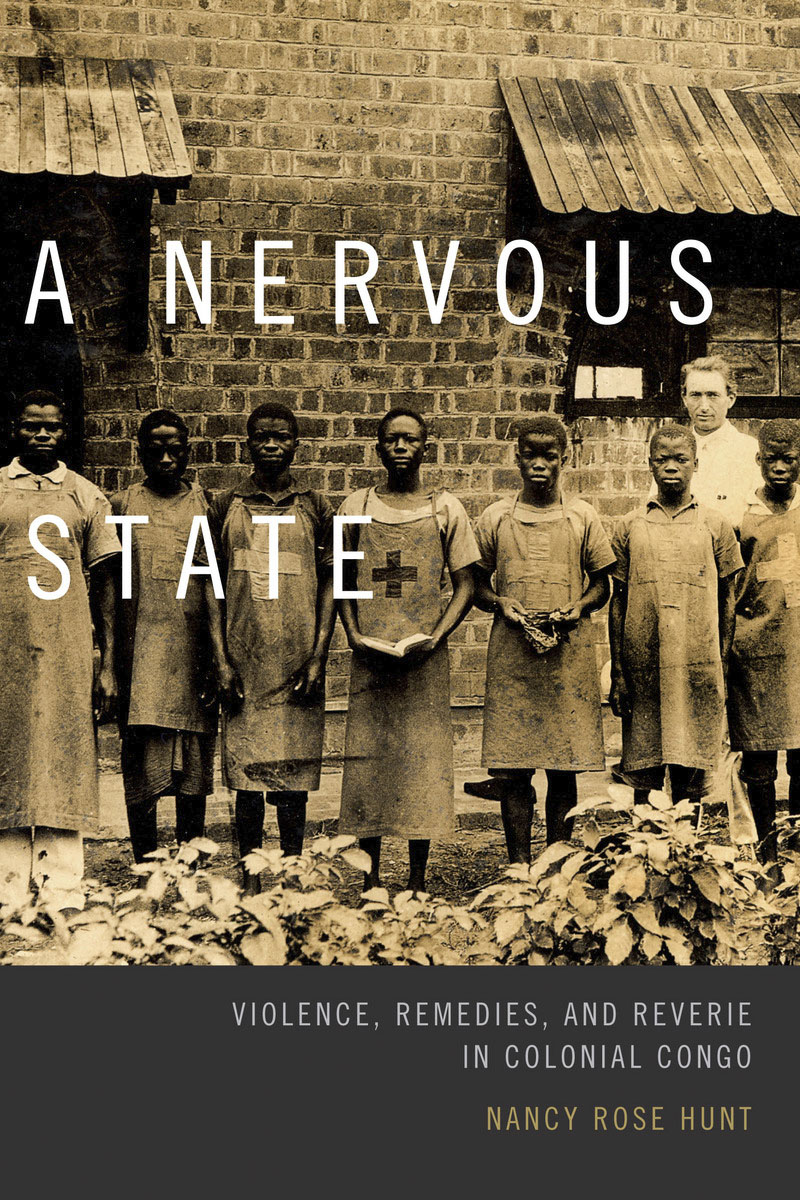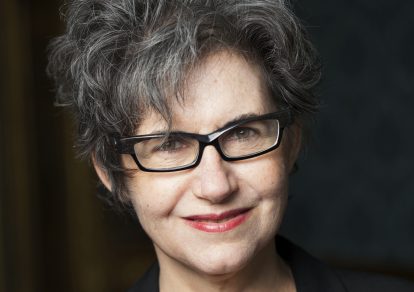UF professor receives Guggenheim Fellowship for work in Africa.
Professor of History Nancy Rose Hunt crosses disciplinary boundaries in her work, which includes medical and cultural histories of the African continent. A visual anthropologist, Hunt fuses her creative sense with her professional background as an archivist. “It is always vital to speak to Africans in accomplishing vivid histories and ethnographies of Africa,” says Hunt. “Observation is important too. But my project privileges vernacular — African-made — image-based archives and African dialogues.”

Hunt played an instrumental role in preserving and securing an archive of the work of Congolese street artist Papa Mfumu’eto, whose comics and illustrations were immensely popular in Kinshasa, Democratic Republic of the Congo. The archive, comprising hundreds of images reflecting African myth, culture, and politics, is now being catalogued at UF’s Smathers Libraries — the only collection of its kind in the world.
Hunt’s contributions to African history caught the attention of the John Simon Guggenheim Foundation selection committee. In April, the foundation named Hunt a 2018 Guggenheim fellow to continue her image-based work in Kinshasa, taking the Papa Mfumu’eto archive and an archive of drawings produced by Kinshasa children in 1968 back to the Congo for reflexive dialogue on the collections. “The great thing about a Guggenheim is the utter freedom to do what you want with a generous sum of monies, whether in creative research or in making art,” says Hunt.
Recipients were selected from a group of almost 3,000 applicants in the Guggenheim Foundation’s 94th competition. The Guggenheim Fellowship honors exceptional contributions to and creativity in one’s chosen field. Only one other professor from UF, Professor Charlie Hailey from the School of Architecture, received a Guggenheim this year.
Hunt’s previous accolades include the Herskovits Book Prize for her first book, A Colonial Lexicon: Of Birth Work, Medicalization, and Mobility in the Congo (1999) and numerous fellowships for archival and ethnographic research in Africa and Europe. For example, her book A Nervous State: Violence, Remedies, and Reverie in Colonial Congo, for which she received the Martin A. Klein Prize in 2016, integrates politics, history, and medical investigations. A Nervous State focuses on the effects of colonial rule of Congo on social, reproductive, and mental health and discusses at length women’s healing and dance therapies that formed in response.
 “My first reaction [to receiving the Guggenheim] was to feel I live a blessed life filled with gratitude.”
“My first reaction [to receiving the Guggenheim] was to feel I live a blessed life filled with gratitude.”
A Nervous State focuses on the effects of colonial rule of the Congo on social, reproductive, and mental health and introduces into the literature the healing cults that were formed in response.
Hunt also discusses the Belgian Congo’s postwar push for development and the injustices layered in its infrastructure, examining, for example, an infertility clinic set down near a penal colony and atrocious early imperial violence. She explores the rise of dreams, songs, and expressive dance among Congolese healing from wounds left in the wake of King Leopold’s rule, challenging the typical catastrophe narrative of the Belgian Congo in favor of an ethnography of recovery from harm.
“My method is to create dialogues with different categories of Kinshasa persons today,” says Hunt. “How do they interpret and contextualize this counterpart in visual imaging? Historians have worked with oral history for generations now. But asking one’s research subjects to suggest a historical trajectory, and to comment on the significance of visual messages in a context where mental heath and madness may enter into conversations, this is new.”
For more on Hunt’s acquisition of the Mfumu’eto comic collection, see the Spring 2018 issue of Ytori magazine.
To support the people, program, or research featured in this story, please visit